Pioneering Houston Chef Retires — Robert Del Grande Looks Back and Forward on a Grand Career
Inside the Head of the Man Who Became a Beacon of the Bayou City's Culinary Heritage
BY Laurann Claridge // 05.23.22Robert Del Grande will create the menu for the Houston Texans Season Premiere fundraiser on August 27.
It’s the end of a remarkable era. Chef Robert Del Grande, the biochemist armed with a Ph.D. turned chef, has bid adieu to the Houston restaurant where he gained both national fame and local acclaim, The Annie Café & Bar (formerly known as the much-beloved Café Annie).
The James Beard Award-winning chef, who is considered one of the godfathers of the Southwest cuisine movement, has retired from his post as executive chef, just days before he and his wife Mimi headed to Austin to be with their daughter Tessa, as she gave birth to their first grandchild.
Ascending to the position of chef emeritus, Del Grande will stay on to assist his successor, chef Brian Sutton, as a consultant. Del Grande remains a partner in the Schiller-Del Grande Restaurant Group, which operates The Grove and The Lake House at Discovery Green.
But before he departed from The Annie, the sainted chef sat down with PaperCity over coffee, which led to a glass of wine, to ponder the wide-ranging questions we posed to discover what life outside the kitchen might look like.
What does retirement look like for you?
Retirement? I envision retirement as more of a gentle segue towards being emeritus — still engaged but more from a philosophical point of view. Possibly call it: Chef Emeritus. It’s less about peeling carrots (which I enjoy — it’s all in the spirit you do it in) but, hopefully, more about contributing the insights and wisdom that I’ve gathered over the last four decades.
Lately I’ve been working with The Annie/Turner’s kitchen team on how to think about a dish — in other words, what makes good culinary sense. This is often very elusive. Sooner or later, someone will ask: What is your culinary philosophy?
I want each member of the team to have a good answer. I’m still thinking about that question myself and what a good answer might be. That’s the point of philosophy — trying to find a deep insight about an elusive question.
Your career has been full of a lot of accolades, but for most people, it’s not all about that. What has been the most meaningful?
The accolades are always nice and very much appreciated. Hopefully they come with the opportunity for an acceptance speech to thank everyone that has made your career possible. No one does it alone. There are always helpful hands along the way. It’s easy to forget who has opened the door for you. I always think of Julia Child, Alice Waters and Wolfgang Puck. What is most meaningful is that I was so fortunate to have them as inspirations, and then as friends.
The best accolade one can hope for is to be respected by the best in the field and to have them consider you one of them. And when one of them mentions, “I borrowed this idea from you,” you feel an even deeper appreciation of being part of something greater than yourself.
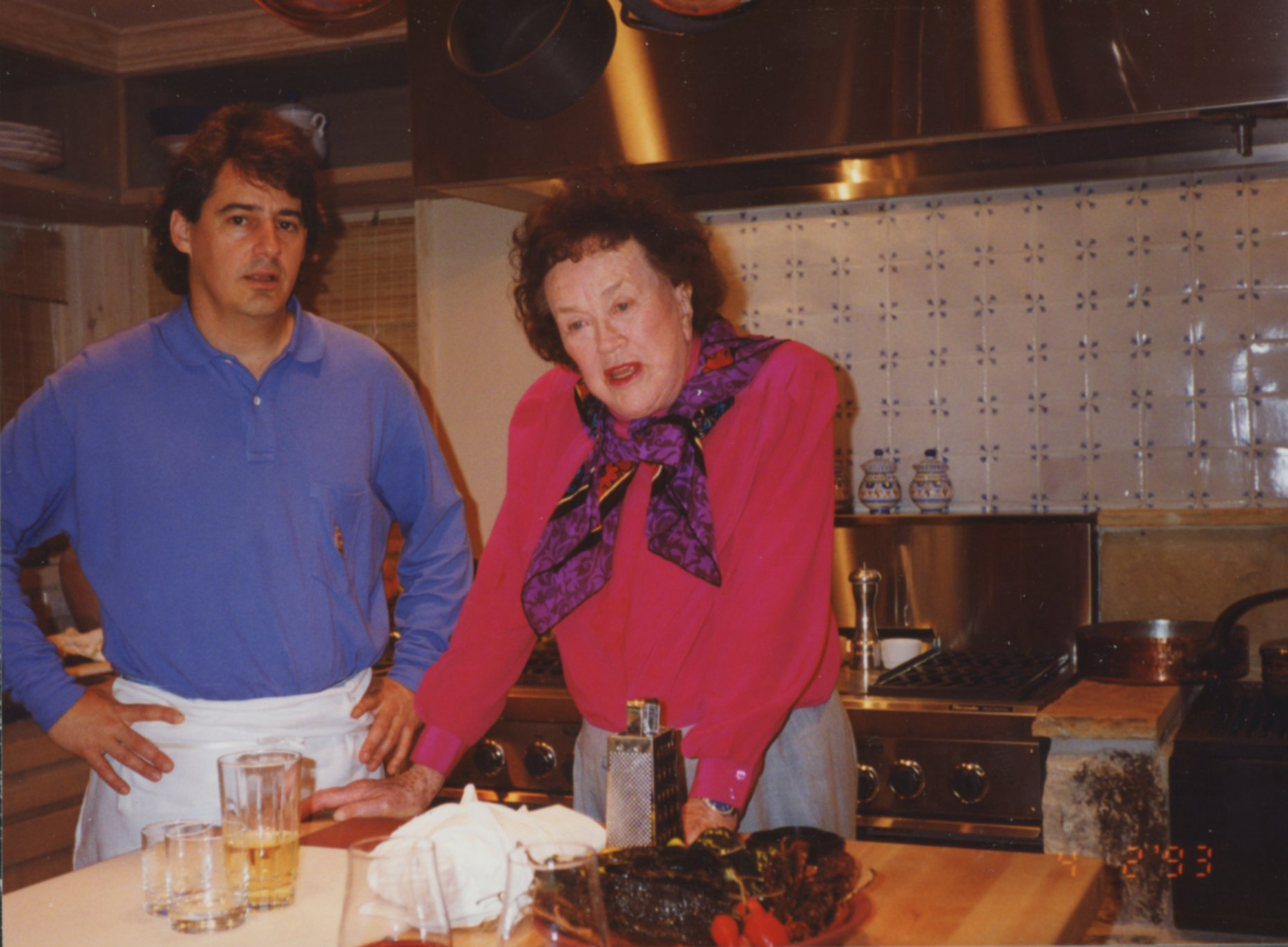
I read Julia Child’s books in the late 1970s, trying to learn as much as I could. If you told me at that point in time that in the future, I would sit in Julia’s home kitchen in Boston with some of the best chefs in the country and drink champagne, I would have been incredulous. At the end of that incomparable evening, Julia called us a cab.
She went to a phone mounted on the wall of her kitchen to call a cab company. She announced: “This is Julia Child — can you send a cab to my house. Just honk when you arrive, and my friends will come out.” Some memories are indelible.
If I were to pick one singular moment among many, it might be when, after explaining the nuances of chilies to Julia Child, she sent me a handwritten note thanking me (imagine that — Julia thanking me for a lesson!). She signed it: “Love Julia, your friend.” Then she added a parenthesis: “(And I mean it!).
She was a wonderful friend. She inspired me to always be thoughtful and kind. And, above all, how to be gracious.
Now that we all have a chance to travel again, what far-flung place would you like to visit most? And why?
I suppose The Great Wall of China — my mother in her later years told me I should go to China and walk on the Great Wall — she said it was worth the trip. I suppose I should go. Of course, she probably knew everything about The Great Wall before she and my father went. I should be as well researched.
Then, of course, there’s the moon. Regardless how gray and desolate it seems, it too seems worth the trip
A side story: In 1981, after finishing my Ph.D. in biochemistry and just after arriving in Houston, I heard an announcement on the radio that NASA was interviewing for astronauts. I always wanted to be an astronaut since I grew up during the Mercury, Gemini, Apollo programs. But I wasn’t a pilot. Then the announcement said the only requirement is having a Ph.D. I was driving in my car at the time, so I had a little time to think about the possibility. Space? Biochemistry in space? The cuisine of space? And the mystery?
I don’t remember what happened next. One minute I’m all fired up about space, and 40 years later, I’m still not an astronaut. Probably too late for the moon as well, but, as with most things, you never know.
Favorite drink.
I’m a contextual drinker: Oysters? Muscadet or a crisp Chenin blanc. A roasted chicken with fennel & olives? Then something from the Rhone Valley. A fine guinea hen? Then Pinot Noir. A cool spring sunset? A gin & tonic. Some perfect avocados? A margarita. An aged goat cheese? Sauvignon blanc. On a cold winter evening? A nice bourbon.
An seminal book on physic or philosophy? Most likely single malt scotch. And when undecided? Champagne!
The meal that comforts you.
The first dish I learned to cook, maybe because it was my favorite dish or because I thought it was magical, was pancakes. I was about five years old. All these years later, making pancakes still seems magical. And the comforting magic is further multiplied when you add maple syrup.
The restaurants (anywhere) you have yet to visit but would love to dine.
I have a fascination with historic restaurants that span several eras and can list a retinue of intriguing personas that have dined there. In Paris, in 1983, I remember walking past Le Grand Véfour. Possibly I recalled that the classic Sauce Mornay was introduced there. Perhaps I knew Napoleon, Hugo, Colette, de Beauvoir, Sartre, Pagnol and Cocteau had eaten there.
But I didn’t eat there on that trip, but I might have thought — someday. Maybe I should return just to absorb the décor, the ambience, and such a rich history.
If you could live anywhere, where would you reside?
When I was a graduate student, a post-doctoral fellow that I admired told me that every place in this world has something to offer, but it won’t come to you, you have to go look for it. Following that bit of wisdom, I’m happy in most places. As Melville said: “Meditation and water are wedded forever.”
Therefore, I enjoy coastal locations — particularly the Hawaiian Islands, where the coastline and the infinite sea stimulates my thinking. But I also enjoy the mountains equally well, but perhaps it’s because of the rushing streams and rivers. A locale in the Sierras or the Rocky Mountains would be attractive.
Best food-world trend or invention.
A colleague just gave me a hard-cooked egg timer. You drop it in the water when cooking eggs, and the color changes to indicate the degree of doneness. I love visual clues to determine doneness, so this is brilliant. It’s hard to see through an eggshell or feel the doneness of a hard-cooked egg. And who doesn’t love a perfectly cooked egg. So many culinary possibilities.
Worst food-world trend or invention.
I’ve never been attracted to gimmicks, particularly technique for technique’s sake. I once coined a phrase for my team: Every piece of equipment is a tool, not a temptation. Maybe I had a Glenn Gould phrase in mind — the abortive gesture, where an art goes beyond itself just for an effect. I think that scientific laboratory equipment is best left in the laboratory.
In my science days, I remember a professor saying that scientific equipment exists or is created to answer a question, not just to do something cool, and the experiment that uses the least amount of equipment to answer an intriguing question is a good experiment. Even in science, like the kitchen, keep it simple is a good mantra.
Sometimes I use that thought in the kitchen when someone is working on a new dish — I’ll say: Let’s clarify the idea first, then we can discuss the appropriate technique.
Real-life heroes.
I could say Bob Dylan for his lyrics. I could say Glenn Gould for his musical insights. I could say Jerry Garcia for his lyrical guitar playing. I could mention Wallace Stevens for his poetry. I could say Julia Child for her wit and graciousness, I could say Neil Armstrong for his level-headedness (plus, he landed on the moon). I could say Einstein and the coterie of 20th century physicists for their counterintuitive-ness.
In the end, I would say my wife. If not for her, that last four decades would never have happened. Heroes inspire us to strive to do better things happen — to reach beyond ourselves.
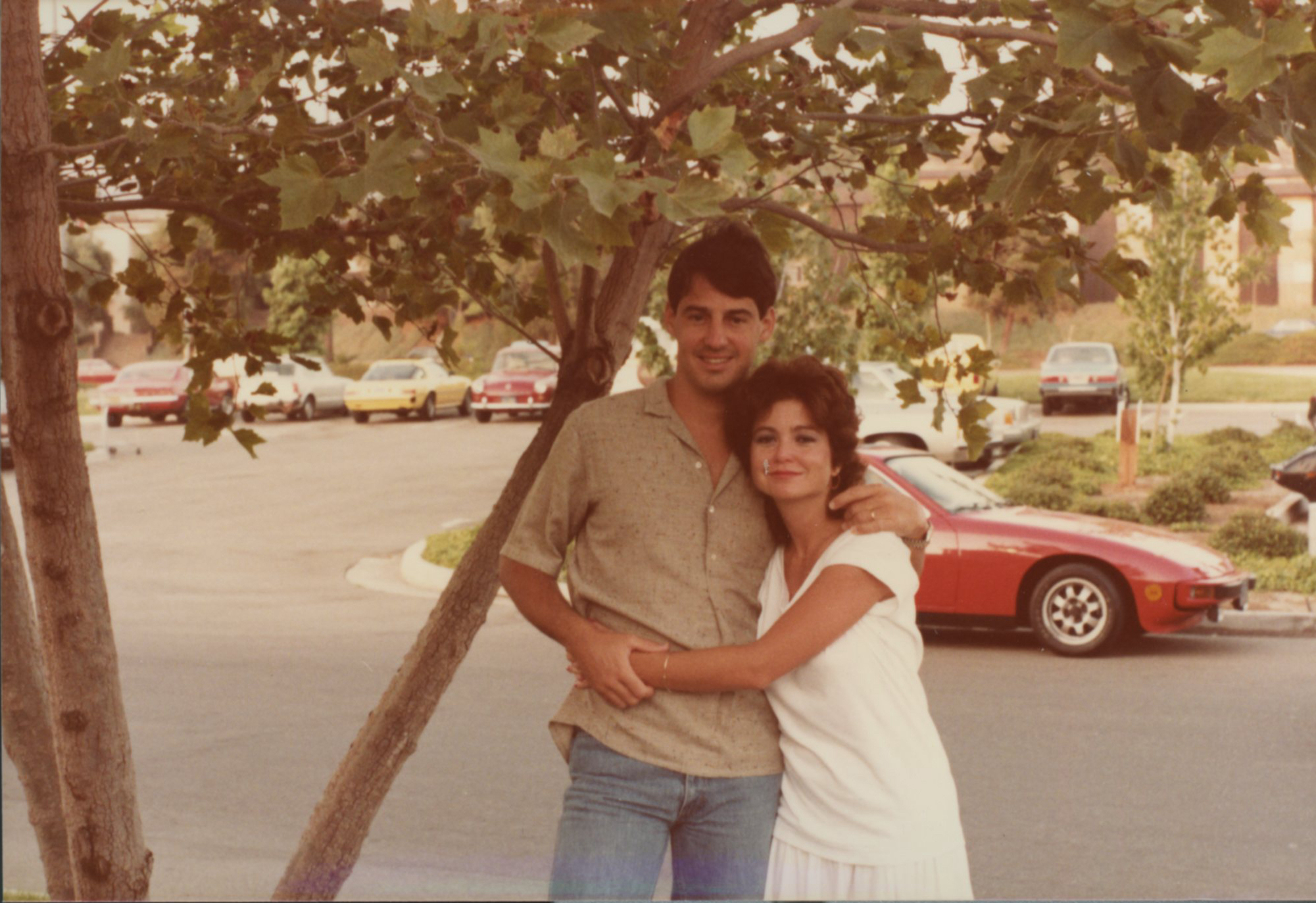
Pet charitable project
I’m still drawn to charities that create opportunities for young artists. I’m forever grateful to those that opened the door for me, so I try to open the door for others.
Happiness.
Playing the right chord at the right moment.
-or-
Sitting at the piano working through a piece that was written 300 years ago thinking: how timeless.
-or-
A cool morning, an inspiring book, and an excellent cup of coffee.
Your idea of misery.
Having a cold so I can’t smell. How diminished the world becomes.
What are you reading now?
I just finished All Quiet on the Western Front. I should have read it years ago (or I was supposed to read it years ago) but never got around to it. Bob Dylan mentioned the book in his Nobel Speech, and since I just saw him, I thought I’d read it for some possible insight into Dylan’s writing.
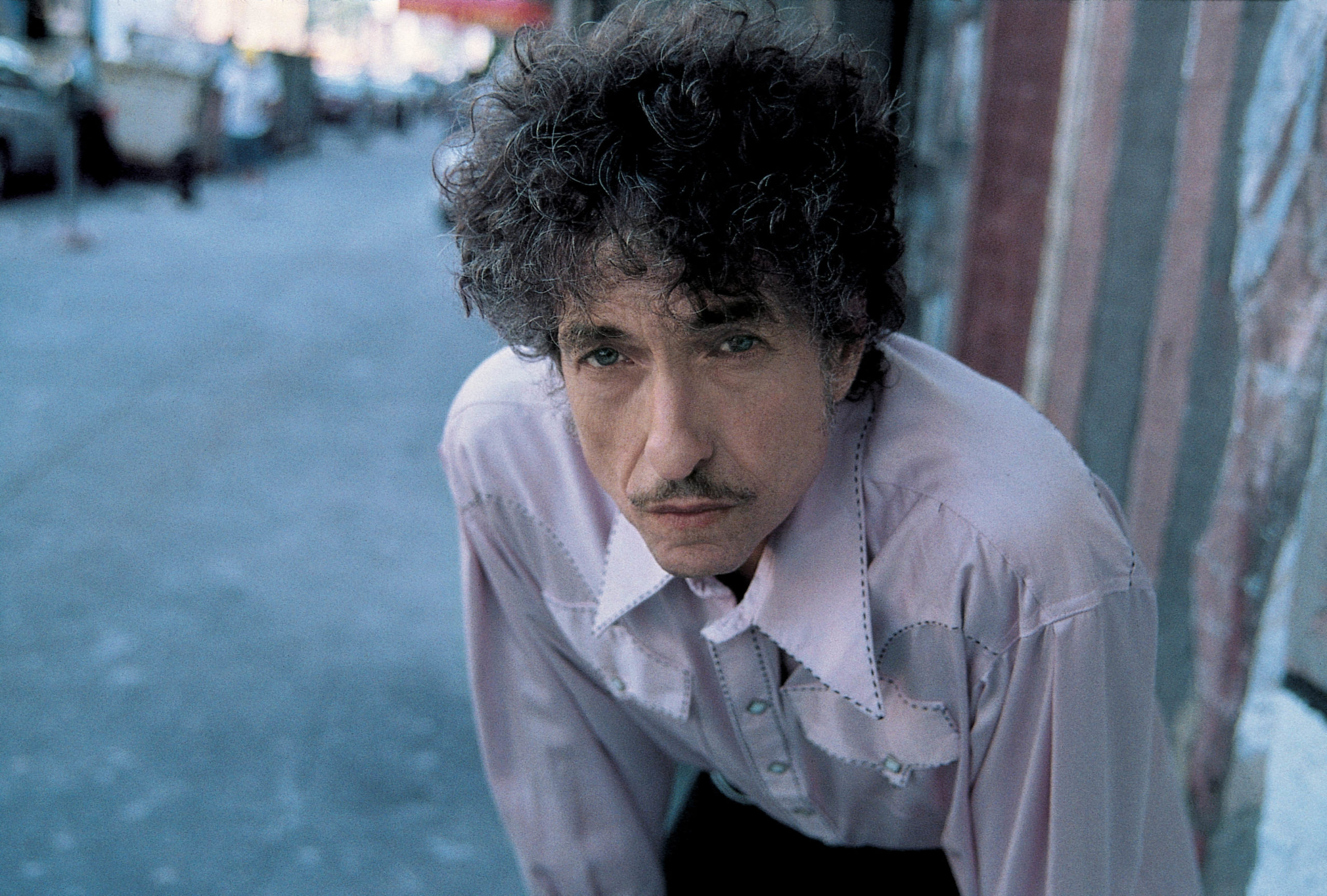
At the other end of the spectrum, I recently read Heisenberg’s Physics and Beyond, which beautifully weaves 20th century physics and ancient Greek philosophy. As well, I’m fascinated by the short-story form, so I’ve been ricocheting between Chekhov and de Maupassant, which somehow (as I said — I tend to ricochet between genres) led me to Mo Yang and Murakami and George Saunders.
In the middle of all of it, I still open books on music theory to better understand how music works. In music, most of the time, I feel like I’m just guessing at the best chord to play next.
Is there something you’d love to throw yourself into and learn?
I’m looking forward to pursuing projects that have captured my imagination for quite some time, but I never had enough time to nurture them. I’ve formed a new band with my good friend Dean Fearing — the Blue Williams — to explore the singer-songwriter genre where the song form is akin to a short story in verse. We’re currently working on a series of songs loosely revolving around a retelling of the Cinderella story, but from a somewhat Chekhov point of view.
It’s staged in a small Texas town with a seasonal rodeo and country fair. It’s not hard to imagine that Cinderella’s shoes are hand-tooled cowboy boots. We plan to record it, but first I need to study sound and recording engineering.
Plus, I’m learning pedal steel guitar for an authentic Texas sound. It’s going fairly well, but I’m struggling with the accordion. For some reason, I thought playing the accordion was a cool idea.
One of my passions — until now a sideline passion — has been distilled spirits. I was first fascinated by gin because of the perfumy botanicals that are frequently used in kitchens. The techniques for making gin synced nicely with my early laboratory days — equations, distillation, chromatography, etc. So maybe I’m envisioning retirement as a return to the beginning — to my first interests in science.
It’s possible I might become the chief science officer for New Artisan Spirits, where I currently oversee the distillation runs for Roxor Gin.
I’ve been studying fermentation science as well. I have some interesting bourbon experiments maturing in barrels. I’m still deep in the required reading — studying the history of distilled spirits and university publications. Like cooking, history offers many insights and inspirations.
Last but not least: I would like to write a string quartet. Maybe one with a pedal steel guitar as a fifth member. Make it a string quintet.
Retirement isn’t a time for naps. Too much to do.
If you could keep only three possessions (not people, but things).
My favorite guitar, a classic book, my most trusty kitchen knife — that sums me up.
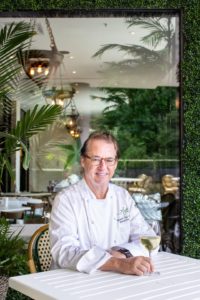
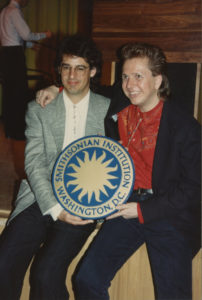
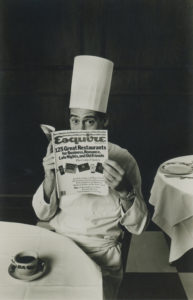


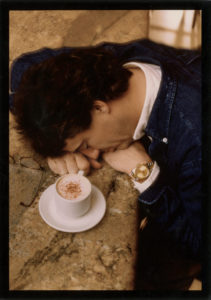
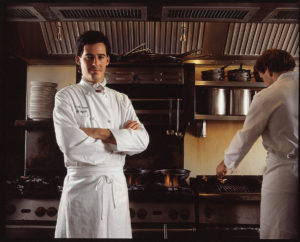


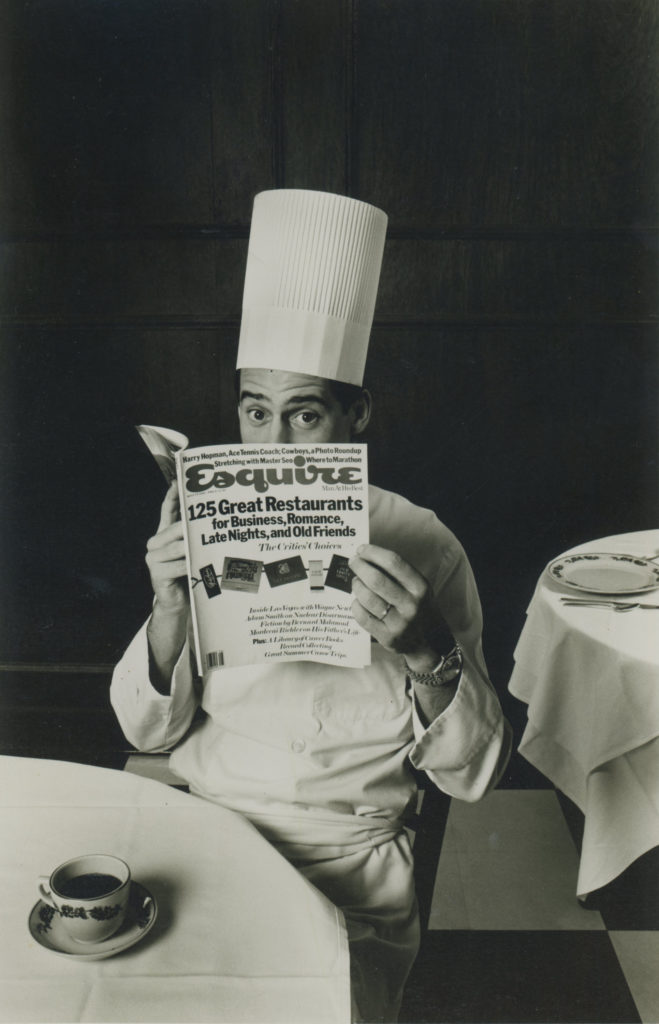
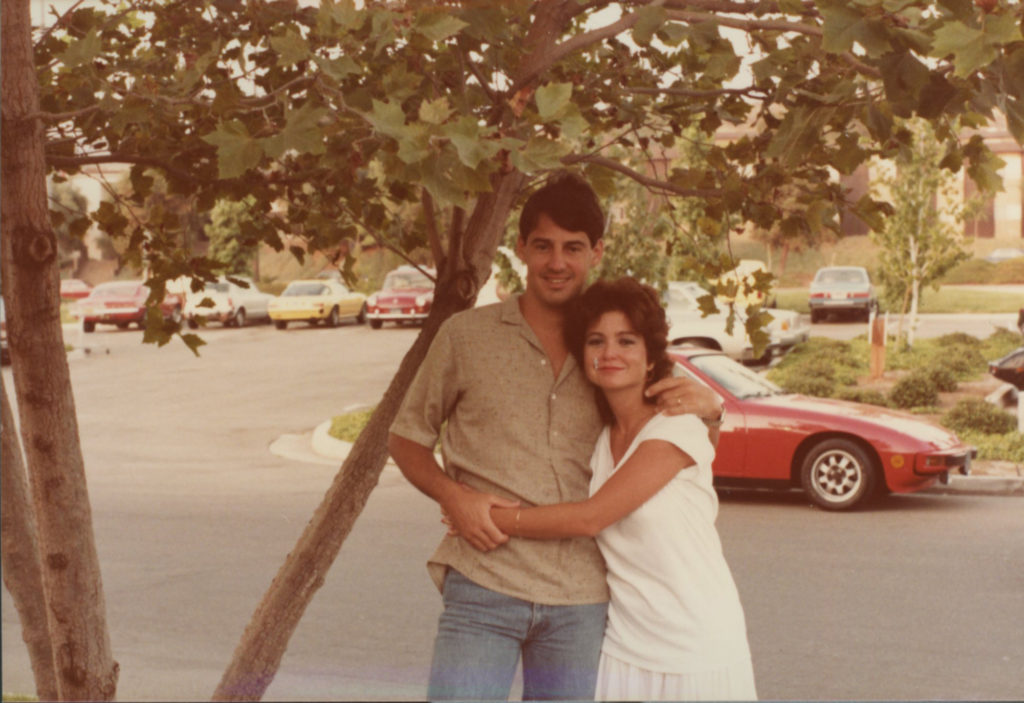

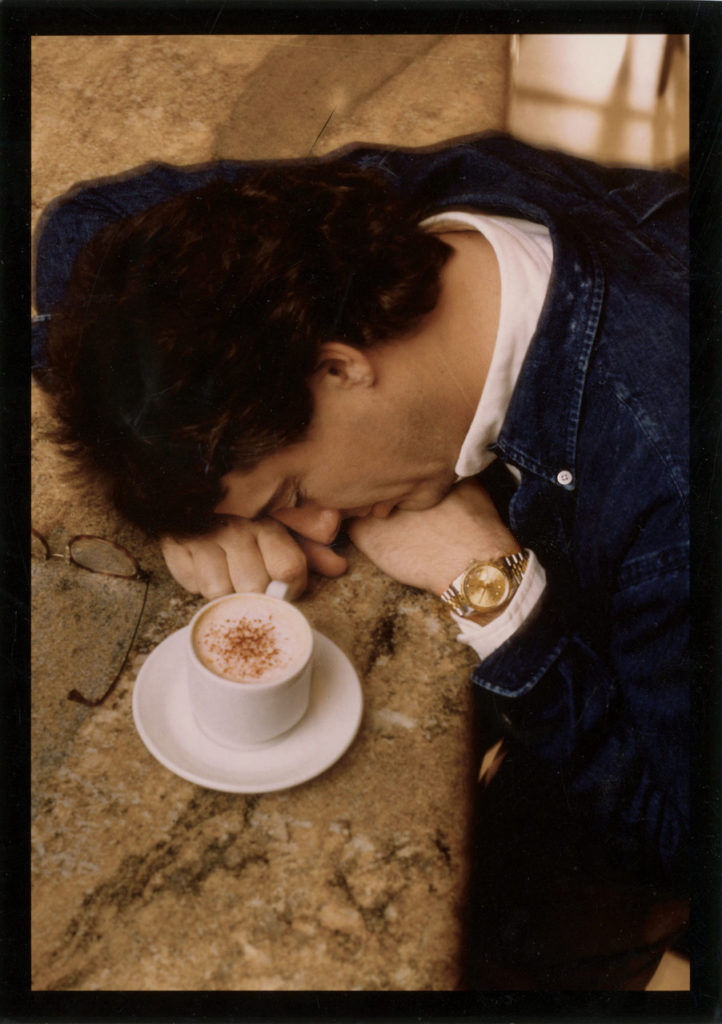
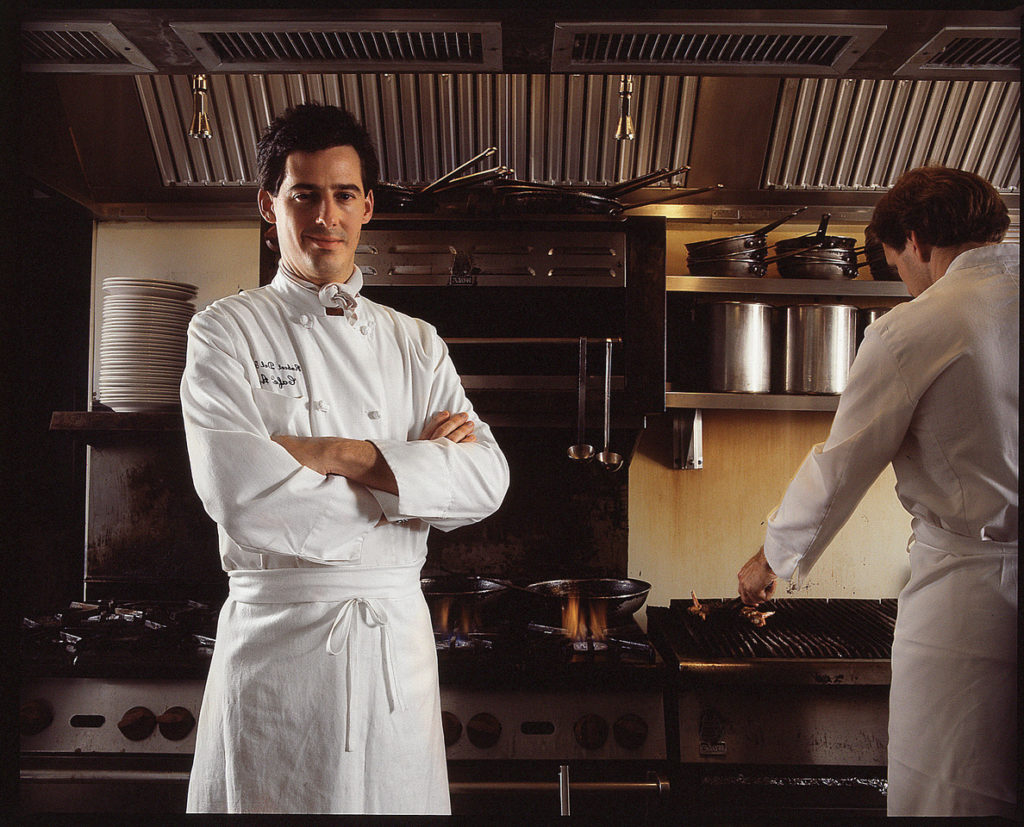







_md.jpeg)




